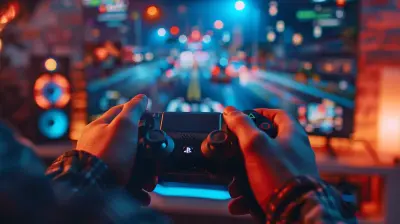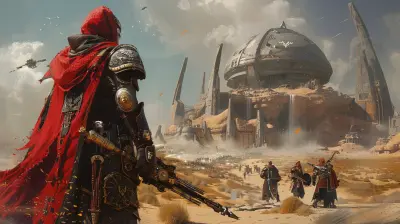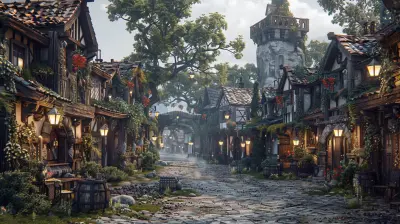Exploring the Blurred Line Between Games and Social Platforms
25 November 2025
Let’s kick things off with a simple question: when was the last time you played a video game just to play it…and didn’t end up chatting, dancing, or hanging out virtually with your friends? Yeah, exactly. Games today are no longer just games—they’re becoming the new social playgrounds.
From catching up with friends in Fortnite to attending concerts in Roblox or partying in VRChat, games are now where we laugh, bond, share, and create memories. It’s like the gaming world and social media had a baby—and it’s growing up fast.
So, in this article, we’re diving into this fascinating transformation. We’re looking at how games and social platforms are merging, why it’s happening, what it means for gamers and developers alike, and how this shift is shaping our digital future.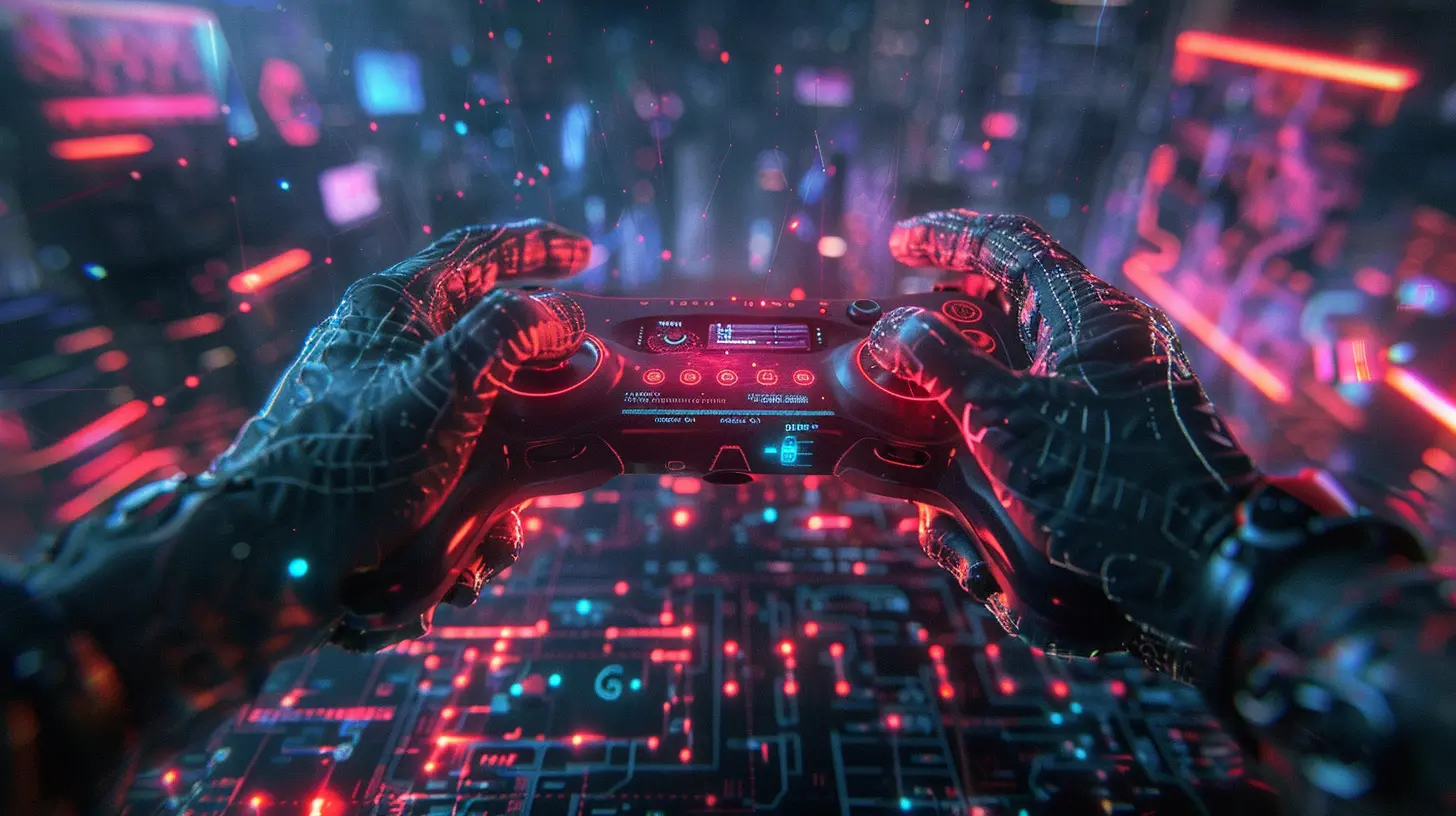
The Evolution of Online Gaming: From Pixels to Parties
Let’s rewind a bit. Back in the early days of gaming, it was mostly a solo adventure. Think Super Mario, Tetris, or Pac-Man—games where it was just you against the machine.Fast forward to the 2000s, and multiplayer games like Halo and Counter-Strike showed up, allowing players to team up or battle it out with others. But even then, communication was limited mostly to voice chats or in-game text.
Now? Games are more like social hubs than battlegrounds.
Games like Fortnite and Animal Crossing aren’t just about scoring points or finishing levels. They’re about hanging out. They’re about expression. They’re about community. You can throw dance parties, put on fashion shows, or just sit on a virtual bench and chat for hours.
We’re not just playing games anymore—we're living in them.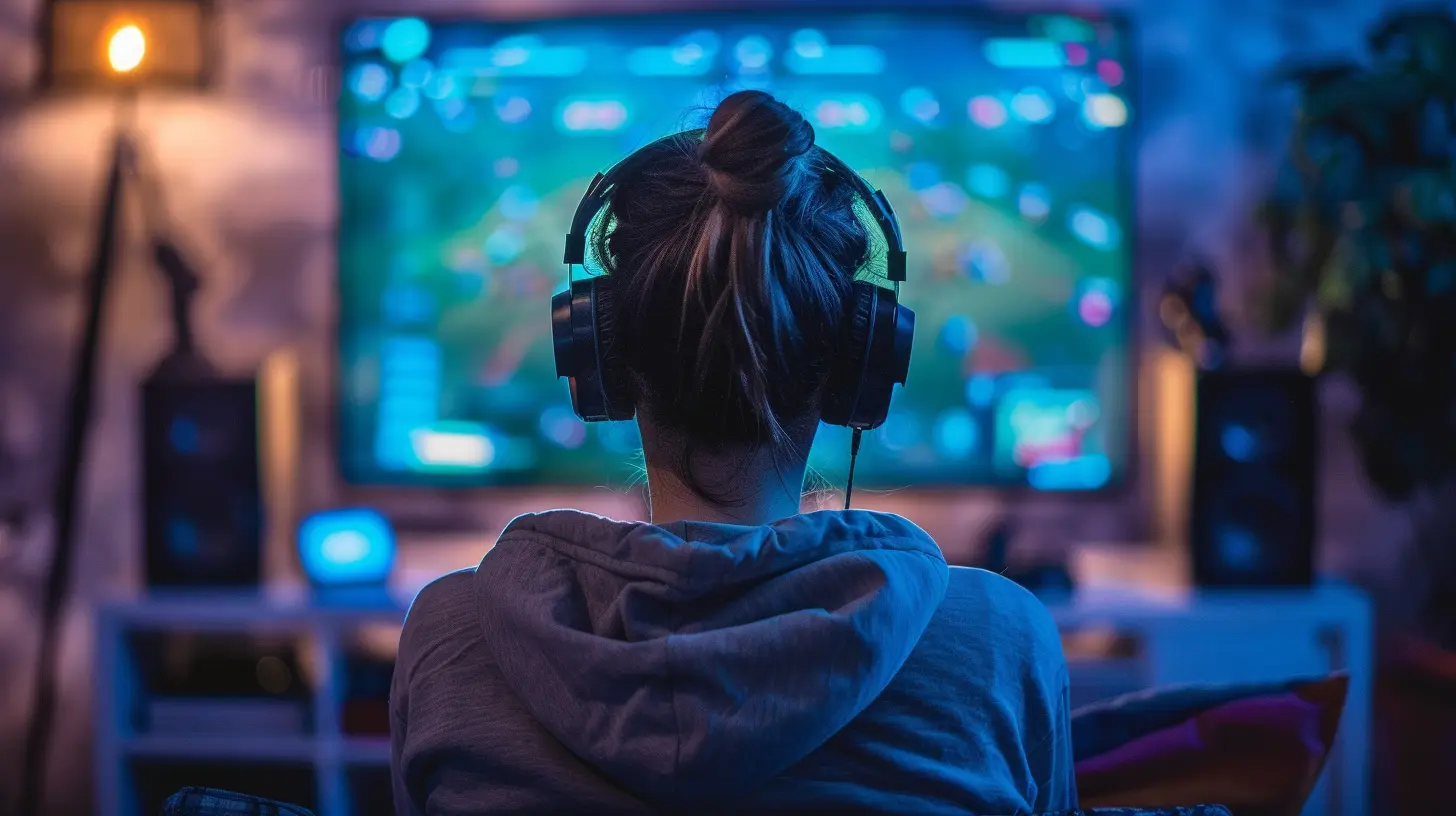
Why the Shift? The Perfect Storm of Tech and Culture
So, what’s behind this shift from gaming to socializing within games?1. Better Tech = More Possibilities
Let’s give a round of applause to high-speed internet, powerful mobile devices, virtual reality, and real-time 3D rendering. These technologies didn’t just improve gameplay quality—they opened the door to shared online experiences that actually feel real.When you combine slick graphics, smooth communication tools, and massive multiplayer capabilities, you get a digital space that feels alive. Something worth coming back to—not just to game but to hang out.
2. Social Media Fatigue Is Real
People are honestly getting tired of the regular ol’ social media routine. The endless scrolling, the polished highlight reels, and the pressure to look perfect 24/7. It gets exhausting.Games offer a refreshing change. They give you avatars, fictional worlds, the freedom to be goofy, creative, and authentically in the moment without the chore of curating your image. In a game, you can wear a banana suit or ride a unicorn rocket to the moon… why not?
3. The Pandemic Changed Everything
When COVID-19 hit, the world went into lockdown—and boom, digital spaces became our lifelines. Suddenly, games turned into schools, concert venues, therapy sessions, and nightclubs.It pushed developers to think way beyond gameplay mechanics. It made them focus on emotional engagement, community building, and real-time connections. And guess what? Those changes are here to stay.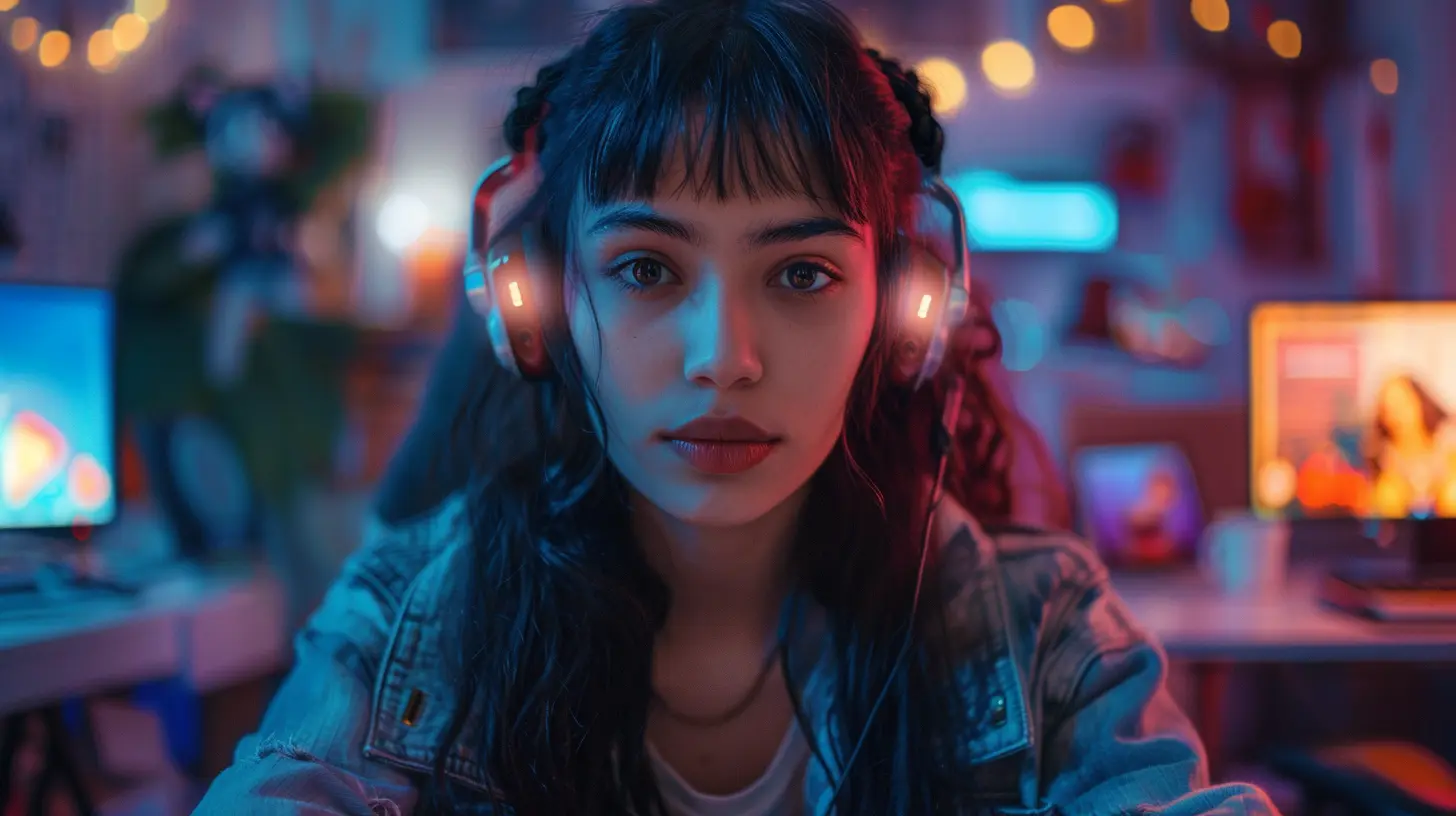
From “Just a Game” to a Digital Third Place
Sociologists have this cool concept called the “third place.” Your first place is your home, your second place is work or school, and your third place? That’s where you relax, socialize, and find belonging. Think coffee shops or gyms.For millions of people today, Fortnite or Roblox is their third place.
Fortnite: From Shooter Game to Social Experience
Yes, Fortnite started as a battle royale, but have you seen what it’s become lately? With in-game concerts (hello, Travis Scott), movie trailers, and custom creative islands, it’s transformed into something much more than just a shooter.Players log in not just to fight—but to vibe, to connect, to be there.
Roblox: A Universe of Social Creativity
Roblox takes it a step further by handing the keys to the players. It’s not just a game, it’s a platform full of mini-games, roleplaying scenarios, obstacle courses, and hangout zones—all created by users.Kids use it not just to play but to throw birthday parties, go on virtual dates, or start their digital fashion empire. How wild is that?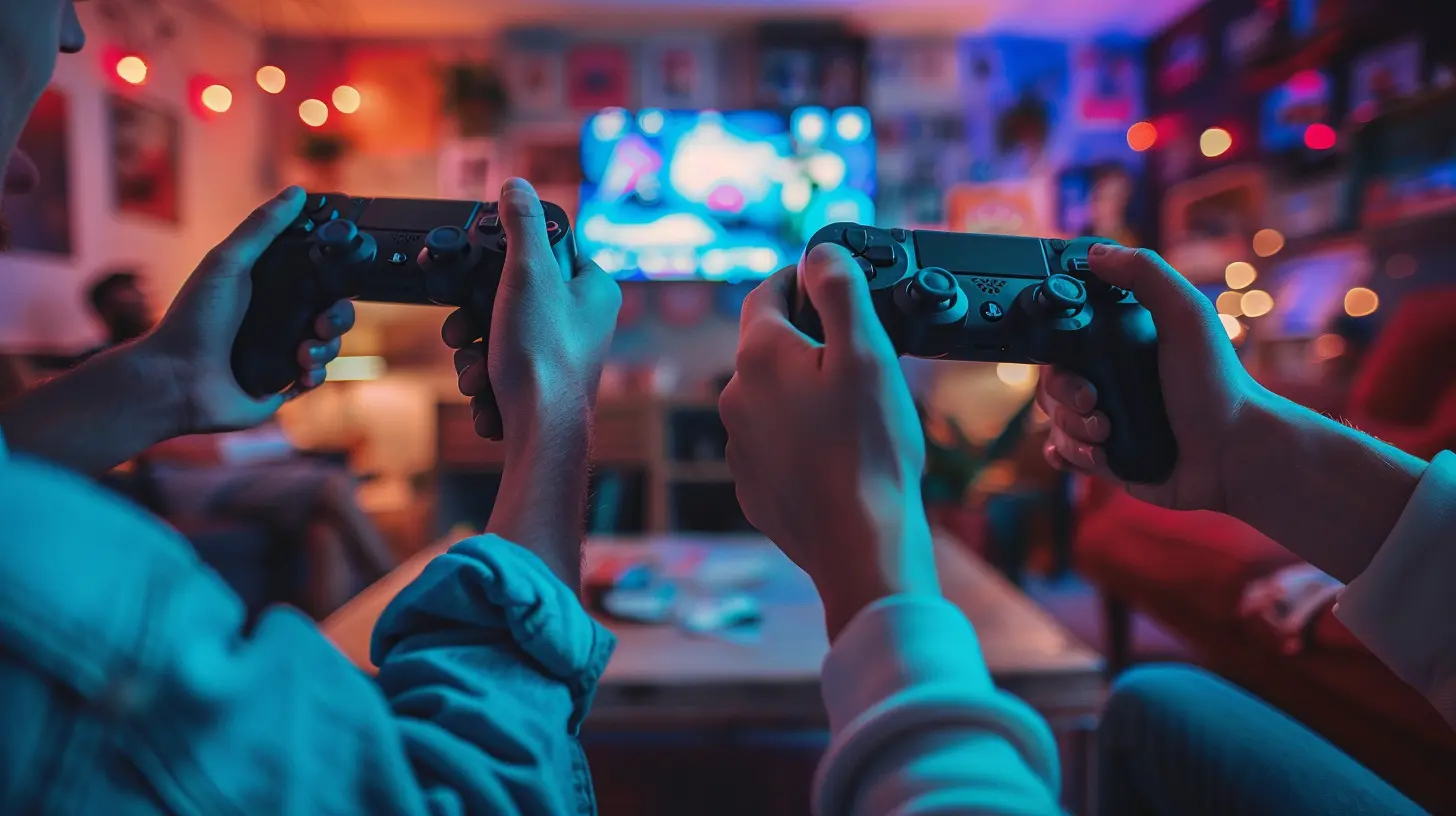
Games Are Becoming the New Social Networks
Let’s face it—some people use gaming platforms more than they check Facebook or Instagram. And honestly? It makes total sense.Here’s why:
Real-Time Interaction
Games allow for live, real-time conversations. You’re not just spamming likes or emojis—you’re running through dungeons together, building castles, or racing cars. That shared experience builds stronger bonds than a double-tap ever could.Shared Goals & Teamwork
Unlike traditional social media, games give you a purpose. A mission. A thing to do together. That’s a powerful ingredient for connection. Whether you're strategizing or celebrating a win, you're emotionally invested—and so is everyone else involved.Identity and Expression
In games, you can be anyone. Your avatar can dress, dance, and act however you want. It’s a canvas for self-expression. And that freedom enhances social interaction. It's like meeting people at a digital masquerade ball—fun, freeing, and creative.New Features, New Rules
As games become more social, developers are baking in features that feel less like game mechanics and more like social media tools.- In-game voice and video chats
- DMs and friend systems
- Emotes and dance moves
- Groups, clans, and guild chats
- User-generated content and sharing tools
Heck, even the UI in many games now looks like a mix between Instagram and Discord.
But with new features come new responsibilities.
The Dark Side of Social Gaming
Not everything is sunshine and pixel rainbows. As social features grow, so do the challenges.Cyberbullying & Toxicity
More interaction means more chances for bad behavior. Trolling, toxic chats, harassment—it happens. And just like with regular social media, moderation becomes super important.Screen Time Addiction
If your favorite game is also your favorite hangout spot, your digital life can easily overshadow your real one. Balance is key.Privacy Concerns
Games collect a ton of data—chat logs, voice recordings, friend lists. And when kids are involved, things get even more sensitive. Trust between platforms and users is a must.What This Means for Developers, Marketers, and Players
This isn’t just a trend—it’s the next evolution of digital interaction. So everyone involved in the gaming industry needs to take this shift seriously.For Developers
The game is no longer just about fun gameplay. It’s about building community, creating safe spaces, and offering features that let players connect, express, and share.Games need to be equal parts gallery, stage, and playground.
For Marketers
Traditional ad campaigns won’t cut it anymore. Brands need to think socially within games. In-game experiences, virtual events, branded gear—these are the new billboards.Think less banner ads… more dance-offs in branded skins.
For Players
You’re not just a gamer—you're part of a growing digital tribe. Your presence, your creativity, and your interactions are helping shape the gaming spaces of tomorrow.Own that power. Use it wisely.
The Future of Games and Social Platforms: What's Next?
We're just scratching the surface here. The future? Well, it’s going to blow your mind.- Metaverses becoming mainstream
- Virtual reality hangouts with realistic avatars
- NFTs and virtual economies powering in-game jobs
- AI companions and procedurally generated social environments
- Cross-platform identities that travel across games and experiences
Gamers are going to have more control, more freedom, and more ways to connect than ever before. And the lines between "game" and "reality"? They’re only going to get blurrier.
Final Thoughts: The Social Revolution of Gaming
At the end of the day, games have become so much more than a way to pass time. They’ve evolved into virtual cities, community centers, and creative art studios. In merging with social platforms, they’ve created entirely new forms of digital culture.And the beauty of it?
You’re not just a player. You’re a citizen in this new world.
So go ahead—log in, squad up, dance a little, create something weird and wonderful. Because the future of social connection? It’s already here. And it’s pixel-powered.
all images in this post were generated using AI tools
Category:
Game TrendsAuthor:

Tina Fisher
Discussion
rate this article
1 comments
Emmett Alvarez
Great article! It’s fascinating to see how games are evolving into social platforms, creating unique spaces for connection and creativity. This shift not only enhances player engagement but also fosters community. Excited to see where this journey takes us in the future! Keep up the great work!
November 30, 2025 at 3:51 AM

Tina Fisher
Thank you for your kind words! I'm glad you enjoyed the article and share the excitement about the future of gaming as a social platform. Appreciate your support!
